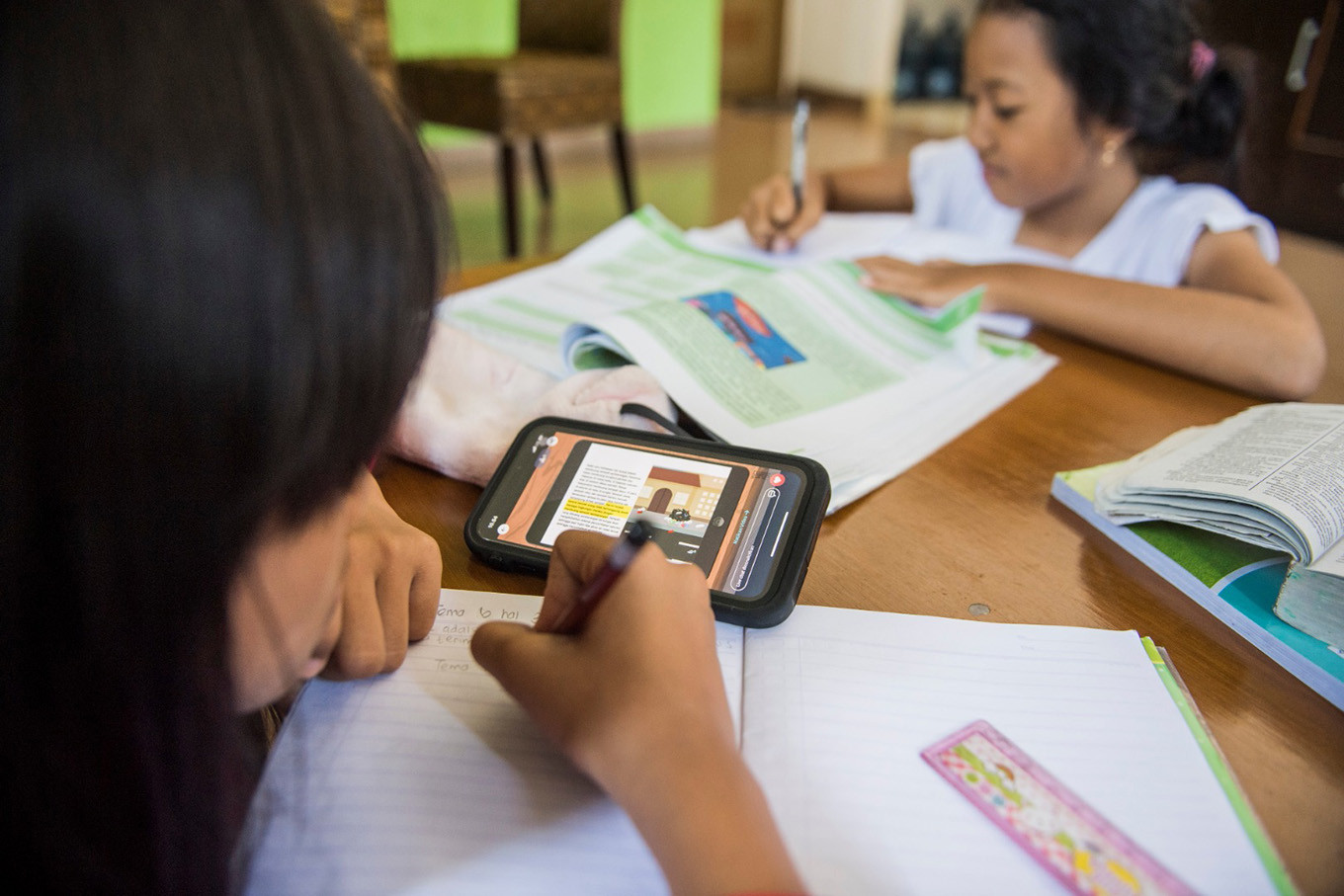Popular Reads
Top Results
Can't find what you're looking for?
View all search resultsPopular Reads
Top Results
Can't find what you're looking for?
View all search resultsGovernment to revamp student assessment to improve PISA scores
Following a decision to cancel the national exam for elementary, junior high and high school students because of the COVID-19 pandemic, President Joko “Jokowi” Widodo has instructed the Education Ministry to seize the opportunity to overhaul primary and secondary education.
Change text size
Gift Premium Articles
to Anyone
F
ollowing a decision to cancel the national exam for elementary, junior high and high school students because of the COVID-19 pandemic, President Joko “Jokowi” Widodo has instructed the Education Ministry to seize the opportunity to overhaul the national evaluation system for primary and secondary education.
Jokowi said that, while the latest report of the OECD's Program for International Student Assessment (PISA) showed that Indonesia's education system had become more inclusive in the past 18 years, it also showed that Indonesian students scored poorly in science, reading and mathematics.
“The report that I received showed that [Indonesia’s] PISA score average in 2018 has decreased in three areas of competence, with the greatest decrease in literacy,” Jokowi said in a videoconference with Education Minister Nadiem Makarim on Friday.
The triennial 2018 PISA report -- which measures the ability of 15-year-olds in the three categories -- shows that Indonesia ranked 73rd in mathematics, 74th in reading and 71st in science out of 79 assessed countries and territories.
Read also: Not even mediocre? Indonesian students score low in math, reading, science: PISA report
Indonesian students’ mean reading score of 371 in 2018 marks a 21-point decrease from the 2015 score and puts Indonesians far below the OECD average of 487. In mathematics, meanwhile, the study gives Indonesian students a score of 379, a 7-point decrease from 2015, while the mean science score decreased slightly, dropping to 396 points from 403 achieved in 2015. Both scores were also significantly below the OECD average of 489.
Jokowi said the PISA findings showed three main drawbacks in Indonesia’s education system the government must immediately address: a large percentage of students with low achievement, a high percentage of students repeating classes and high absenteeism.
Nadiem told Jokowi that he had prepared five measures to address the problems and to increase Indonesia’s PISA score in 2024, one of which was to reform the assessments of student’s academic performance.
That is in line with a plan the ministry announced last December that it would scrap the national exam in 2021 and replace it with a competency assessment and character survey.
“This competency assessment is inspired by PISA and will be very similar to PISA,” Nadiem said on Friday, “The national exam [uses] local standards, but our new competency assessment [uses] international standards.”
Nadiem's five measures also include transforming school leadership, improving teacher education and introducing a flexible curriculum that is adjustable to the needs and learning progress of each student.
“What we have now is a syllabus and policies that are so rigid that they prevent teachers from adjusting the learning material based on the student’s ability. […] Not every student must learn the same thing. In one class students should be able to do different homework or projects,” he said.
The ministry’s new plan will also allow greater participation of various organizations in transforming Indonesia’s education system, with Nadiem saying all stakeholders should share the responsibility to help improve the education.
“Communities and nonprofit organizations working in the education field, companies having a passion for education as well as education technology start-ups must all work together to improve learning outcomes," he said.
Education consultant Indra Charismiadji, while applauding the government’s commitment to improving Indonesia’s PISA scores, said the measures offered by the ministry are not groundbreaking but instead represent an incidental reactive approach.
Indra said it was not the assessment standard that had to change but rather the qualification of Indonesian teachers.
“But until today, the plan to improve teachers' quality remains vague,” Indra told The Jakarta Post on Friday. “[The government] said communities and civil society organizations would be asked to help train teachers. But what kind of training? What are the standards and outcomes of the training? What kind of teachers will be produced? We have yet to hear such details.”
“Not to mention the absence of a database [and thorough mapping on Indonesia’s teachers] to support the policymaking process. So, I’d say it is all empty rhetoric,” he said.
Indra also said the study-from-home policy currently imposed to support physical distancing in response to the COVID-19 pandemic was a way to assess how prepared Indonesia’s education system was to face new challenges in the digital age.
“Schools are now closed, and the learning process turns to online platforms […], but we can see that our teachers are not ready with digital learning. It [remote learning] is chaos, and there is no real solution yet," he said.










